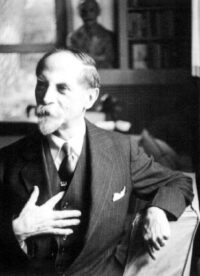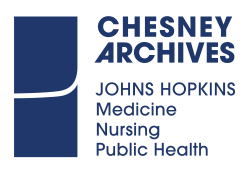Adolf Meyer Collection

Adolf Meyer
by unidentified photographer
Collection Overview
Creator: Meyer, Adolf (1866 - 1950)
Collection Date: 1890 - 1940
Extent: 533 linear feet (766 boxes)
Biography
Adolf Meyer was born in Niederweningen, Switzerland. He received his medical degree from the University of Zurich in 1892. Coming to the United States in 1892, Meyer held positions at the University of Chicago, Illinois Eastern Hospital for the Insane, Worcester Insane Hospital, Clark University, Pathological Institute of New York State Hospitals, and Cornell University before his appointment as professor at the Johns Hopkins University School of Medicine in 1908. He was named psychiatrist-in-chief at the Johns Hopkins Hospital in 1909.
Scope and Content
The Adolf Meyer Collection spans his entire career. Series include personal and professional correspondence, family correspondence, copy books, biographical material, published and unpublished articles, photographs, diplomas, licenses, and honorary degrees. Much of the professional correspondence is with prominent individuals in early twentieth-century psychiatry. Scientific notes and records pertain to Meyer’s research and teaching, and are categorized according to his place of residence: Chicago (1892-1893), Kankakee (1893-1895), Worcester (1895-1902), New York (1902-1909), and Baltimore (1910-1941). Other materials include teaching manuals, patient records, and institutional records, the majority of these dating from his years as Professor of Psychiatry at Johns Hopkins. The professional materials are complemented by a rich family correspondence that begins in his youth as well as by diaries and other biographical items. Many documents are in German. The collection is among the largest of its kind in the United States and constitutes a major resource for the study of twentieth-century American psychiatry and related fields.
